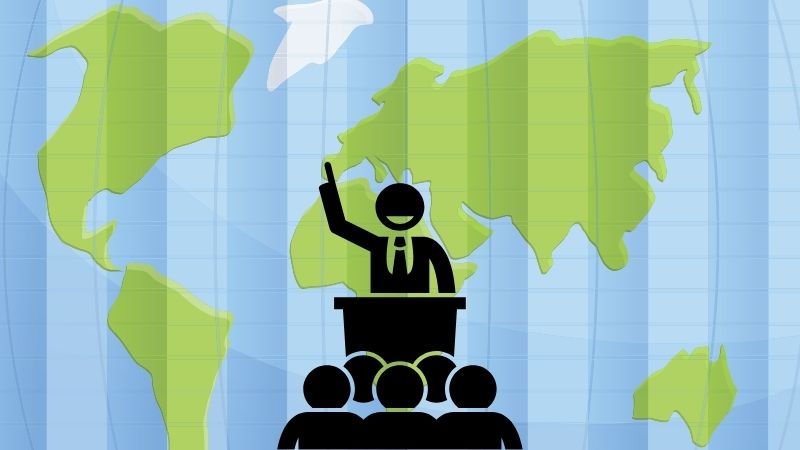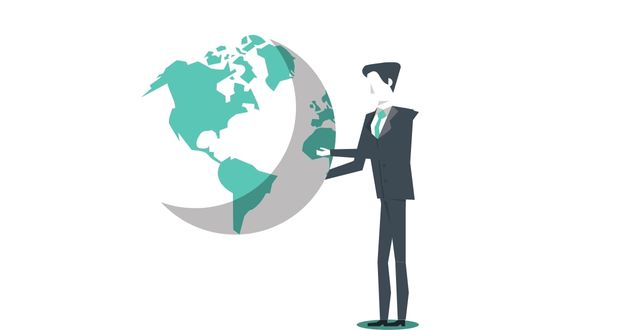Advertisements
The political landscape across the globe is constantly evolving, with new leaders emerging and established ones adapting to changing times. In this article, we will explore the current world leaders who are shaping international policies and their respective countries’ futures. We’ll delve into their backgrounds, their leadership styles, and the challenges they face.
Introduction to Current World Leaders
Current world leaders play pivotal roles not only within their own national borders but also on the international stage. Their decisions can have profound implications for global economics, environmental policies, and international relations. Understanding who these leaders are, their ideologies, and their governing styles can provide deep insights into future trends in global politics and help us anticipate potential shifts in the world order.
In today’s interconnected world, the actions and policies of these leaders influence everything from international trade agreements to climate change initiatives, shaping the lives of billions around the globe. As such, keeping abreast of who is leading the major countries and what they stand for is more crucial than ever. This knowledge is not only vital for those directly involved in politics and global affairs but also for businesses, NGOs, and citizens who are affected by these leaders’ decisions.
Advertisements
This article aims to give a comprehensive overview of current world leaders, highlighting their political backgrounds, the challenges they face, and their impact on both domestic and international arenas. Whether these leaders are navigating through economic recovery post-pandemic, addressing technological changes, or managing geopolitical tensions, their actions will determine future global stability and prosperity.
By exploring the dynamic landscape of global leadership, we can better understand the complexities and responsibilities that come with being at the helm of a nation in the 21st century. This understanding is essential for anyone looking to grasp the nuances of international policy-making and the strategic decisions that shape our world.
Key Global Leaders
United States
| Leader Name | Position | Start of Term |
|---|---|---|
| Joe Biden | President | 2021 |
President Joe Biden of the United States has been a significant figure in American politics for decades. His administration focuses on domestic issues like healthcare and infrastructure, while also addressing international concerns such as climate change and global security.
Advertisements
China
| Leader Name | Position | Start of Term |
|---|---|---|
| Xi Jinping | General Secretary | 2012 |
Xi Jinping, the General Secretary of the Communist Party of China, has been at the forefront of China’s rise as a global power. His policies have emphasized economic growth, technological advancement, and increased military spending.
Russia
| Leader Name | Position | Start of Term |
|---|---|---|
| Vladimir Putin | President | 2012 |
Vladimir Putin, serving another term as President of Russia since 2012, has been a dominant figure in Russian politics. His leadership is characterized by a strong grip on power, efforts to restore Russia’s influence on the world stage, and contentious relations with the West.
European Union
| Leader Name | Position | Start of Term |
|---|---|---|
| Ursula von der Leyen | President of the European Commission | 2019 |
Ursula von der Leyen, as President of the European Commission, plays a crucial role in shaping EU policies. Her focus areas include digitalization, environmental sustainability, and maintaining unity among EU member states.
Leadership Styles and Challenges
Each leader has a unique style that impacts their domestic and international agendas. For instance, Joe Biden’s collaborative approach contrasts sharply with Vladimir Putin’s authoritative style. Similarly, Xi Jinping’s centralized control differs from Ursula von der Leyen’s consensus-driven leadership in the EU.
Challenges such as economic instability, climate change, and geopolitical tensions are common for all current world leaders. Their ability to navigate these issues will define their legacies and influence the global order.
Influence on Global Affairs
The decisions made by these leaders affect global trade, security policies, and international diplomacy. For example, trade policies implemented by the U.S. and China have far-reaching impacts on global markets. Similarly, Russia’s foreign policies and military actions influence European security.

FAQ: Current World Leaders
1. Who are some of the current world leaders?
Some of the current world leaders include Joe Biden (USA), Xi Jinping (China), Vladimir Putin (Russia), Ursula von der Leyen (European Union), Narendra Modi (India), and Emmanuel Macron (France).
2. When did Joe Biden become President of the United States?
Joe Biden became President of the United States on January 20, 2021.
3. What is Xi Jinping’s role in China?
Xi Jinping holds the title of General Secretary of the Communist Party of China, the highest-ranking position in China, and he also serves as the President of the People’s Republic of China.
4. How long has Vladimir Putin been in power in Russia?
Vladimir Putin first became President in 2000. He has been in power for most of the period since then, serving as either President or Prime Minister.
5. What are some challenges facing current world leaders?
Current world leaders face challenges such as managing the COVID-19 pandemic recovery, addressing climate change, handling economic instability, and navigating international conflicts and diplomacy.
6. How does Ursula von der Leyen influence European politics?
As President of the European Commission, Ursula von der Leyen plays a key role in setting policy agendas and initiatives across the EU, dealing with issues like digitalization, environmental policies, and economic governance.
7. What impact do the policies of these leaders have on global affairs?
The policies set by these leaders affect global trade, security, health policies, environmental strategies, and international relations, influencing everything from market dynamics to geopolitical stability.
8. How often do world leaders typically serve terms?
The term lengths for world leaders vary by country. For example, the U.S. President serves a four-year term, while the Russian President’s term is six years. Terms can also be renewed depending on the country’s laws regarding re-election.
9. Can a world leader serve for life?
In some countries, leaders can serve for life, either officially through positions with unlimited terms, like Xi Jinping in China, or through repeated re-elections when there are no term limits, as has been the case with Vladimir Putin in Russia.
10. Where can I find more detailed information about specific world leaders?
For detailed information about specific world leaders, you can visit reputable news sources, official government websites, and international organizations’ websites, which offer in-depth profiles and ongoing coverage of political activities.
Conclusion
Understanding the current world leaders is essential for anticipating future political, economic, and social changes worldwide. The backgrounds, leadership styles, and the particular challenges they face play a crucial role in shaping not only their nations’ futures but also the global landscape. By examining these leaders, we gain invaluable insights into the mechanisms of global governance and international relations in the contemporary world.
Moreover, the influence of current world leaders extends beyond mere political boundaries; it permeates various aspects of global interaction, including economic policies, environmental strategies, and cultural exchanges. Their decisions can catalyze significant international collaborations or provoke conflicts, thereby defining the pace and direction of global developments.
It is also important to recognize the interconnectedness of these leaders’ policies and how they impact global stability and prosperity. For example, trade agreements negotiated by these leaders can affect global supply chains, while their environmental policies can contribute to the global response to climate change. Similarly, their diplomatic engagements and military strategies play pivotal roles in maintaining or disrupting global peace.
As we continue to navigate a rapidly changing world, staying informed about current world leaders and their policies will enable us to better understand the global narrative and prepare for the implications of their decisions. Whether through direct impacts on international markets or through subtle shifts in diplomatic relations, the actions of these leaders will undoubtedly shape the future of international relations and global governance.




